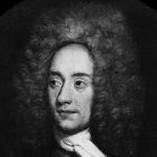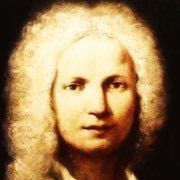Antonio Lucio Vivaldi (UK: /vɪˈvældi/, US: /vɪˈvɑːldi, -ˈvɔːl-/; Italian: [anˈtɔːnjo ˈluːtʃo viˈvaldi] (listen); 4 March 1678 – 28 July 1741) was an Italian Baroque composer, virtuoso violinist, teacher, impresario, and Roman Catholic priest. Born in Venice, the capital of the Venetian Republic, Vivaldi is regarded as one of the greatest Baroque composers, and his influence during his lifetime was widespread across Europe, being paramount in the development of Johann Sebastian Bach's instrumental music. He composed many instrumental concertos, for the violin and a variety of other musical instruments, as well as sacred choral works and more than fifty operas. His best-known work is a series of violin concertos known as the Four Seasons.
Many of his compositions were written for the all-female music ensemble of the Ospedale della Pietà, a home for abandoned children. Vivaldi had worked there as a Catholic priest for 18 months and was employed there from 1703 to 1715 and from 1723 to 1740. Vivaldi also had some success with expensive stagings of his operas in Venice, Mantua and Vienna. After meeting the Emperor Charles VI, Vivaldi moved to Vienna, hoping for royal support. However, the Emperor died soon after Vivaldi's arrival, and Vivaldi himself died in poverty less than a year later.
After almost two centuries of decline, Vivaldi's music underwent a revival in the early 20th century, with much scholarly research devoted to his work. Many of Vivaldi's compositions, once thought lost, have been rediscovered – in one case as recently as 2006. His music remains widely popular in the present day and is regularly played all over the world.
















